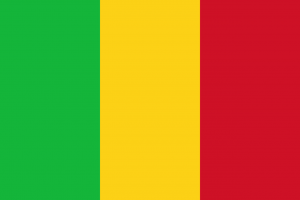Language/Bambara/Grammar/How-to-Use-Have
Hi Bambara learners! 😊
In this lesson, we will learn how to use the verb "have" in Bambara. We will look at the different forms of the verb and how to use them in sentences.
Introduction
The verb "have" is an important verb in any language. In Bambara, it is used to express possession, ownership, and relationships. It is also used to express actions that have been completed. In this lesson, we will look at the different forms of the verb "have" and how to use them in sentences.
Present Tense
The present tense of the verb "have" is used to express actions that are happening now or in the near future. The present tense of the verb "have" is conjugated as follows:
| Person | Bambara | Pronunciation | English |
|---|---|---|---|
| I | n be | n bé | I have |
| You (singular) | o be | o bé | You have |
| He/She/It | a be | a bé | He/She/It has |
| We | n be | n bé | We have |
| You (plural) | o be | o bé | You have |
| They | a be | a bé | They have |
Here are some examples of the present tense of the verb "have" in action:
- Person 1: N be kɛ? (I have what?)
- Person 2: N be kɛnɲɔgɔn bɛ (I have a book).
- Person 1: O be kɛ? (You have what?)
- Person 2: O be kɛnɲɔgɔn bɛ (You have a book).
- Person 1: A be kɛ? (He/She/It has what?)
- Person 2: A be kɛnɲɔgɔn bɛ (He/She/It has a book).
- Person 1: N be kɛ? (We have what?)
- Person 2: N be kɛnɲɔgɔn bɛ (We have a book).
- Person 1: O be kɛ? (You have what?)
- Person 2: O be kɛnɲɔgɔn bɛ (You have a book).
- Person 1: A be kɛ? (They have what?)
- Person 2: A be kɛnɲɔgɔn bɛ (They have a book).
Past Tense
The past tense of the verb "have" is used to express actions that have already happened. The past tense of the verb "have" is conjugated as follows:
| Person | Bambara | Pronunciation | English |
|---|---|---|---|
| I | n yɛ | n yé | I had |
| You (singular) | o yɛ | o yé | You had |
| He/She/It | a yɛ | a yé | He/She/It had |
| We | n yɛ | n yé | We had |
| You (plural) | o yɛ | o yé | You had |
| They | a yɛ | a yé | They had |
Here are some examples of the past tense of the verb "have" in action:
- Person 1: N yɛ kɛ? (I had what?)
- Person 2: N yɛ kɛnɲɔgɔn bɛ (I had a book).
- Person 1: O yɛ kɛ? (You had what?)
- Person 2: O yɛ kɛnɲɔgɔn bɛ (You had a book).
- Person 1: A yɛ kɛ? (He/She/It had what?)
- Person 2: A yɛ kɛnɲɔgɔn bɛ (He/She/It had a book).
- Person 1: N yɛ kɛ? (We had what?)
- Person 2: N yɛ kɛnɲɔgɔn bɛ (We had a book).
- Person 1: O yɛ kɛ? (You had what?)
- Person 2: O yɛ kɛnɲɔgɔn bɛ (You had a book).
- Person 1: A yɛ kɛ? (They had what?)
- Person 2: A yɛ kɛnɲɔgɔn bɛ (They had a book).
Future Tense
The future tense of the verb "have" is used to express actions that will happen in the future. The future tense of the verb "have" is conjugated as follows:
| Person | Bambara | Pronunciation | English |
|---|---|---|---|
| I | n ka | n ká | I will have |
| You (singular) | o ka | o ká | You will have |
| He/She/It | a ka | a ká | He/She/It will have |
| We | n ka | n ká | We will have |
| You (plural) | o ka | o ká | You will have |
| They | a ka | a ká | They will have |
Here are some examples of the future tense of the verb "have" in action:
- Person 1: N ka kɛ? (I will have what?)
- Person 2: N ka kɛnɲɔgɔn bɛ (I will have a book).
- Person 1: O ka kɛ? (You will have what?)
- Person 2: O ka kɛnɲɔgɔn bɛ (You will have a book).
- Person 1: A ka kɛ? (He/She/It will have what?)
- Person 2: A ka kɛnɲɔgɔn bɛ (He/She/It will have a book).
- Person 1: N ka kɛ? (We will have what?)
- Person 2: N ka kɛnɲɔgɔn bɛ (We will have a book).
- Person 1: O ka kɛ? (You will have what?)
- Person 2: O ka kɛnɲɔgɔn bɛ (You will have a book).
- Person 1: A ka kɛ? (They will have what?)
- Person 2: A ka kɛnɲɔgɔn bɛ (They will have a book).
Conclusion
In this lesson, we have looked at the different forms of the verb "have" in Bambara. We have seen how to conjugate the verb in the present, past, and future tenses. We have also seen how to use the verb in sentences. To improve your Bambara Grammar, you can also use the Polyglot Club website. Find native speakers and ask them any questions!
➡ If you have any questions, please ask them in the comments section below.
➡ Feel free to edit this wiki page if you think it can be improved. 😎
Videos
How to count from 1-10 in Bambara/Dioula - YouTube

